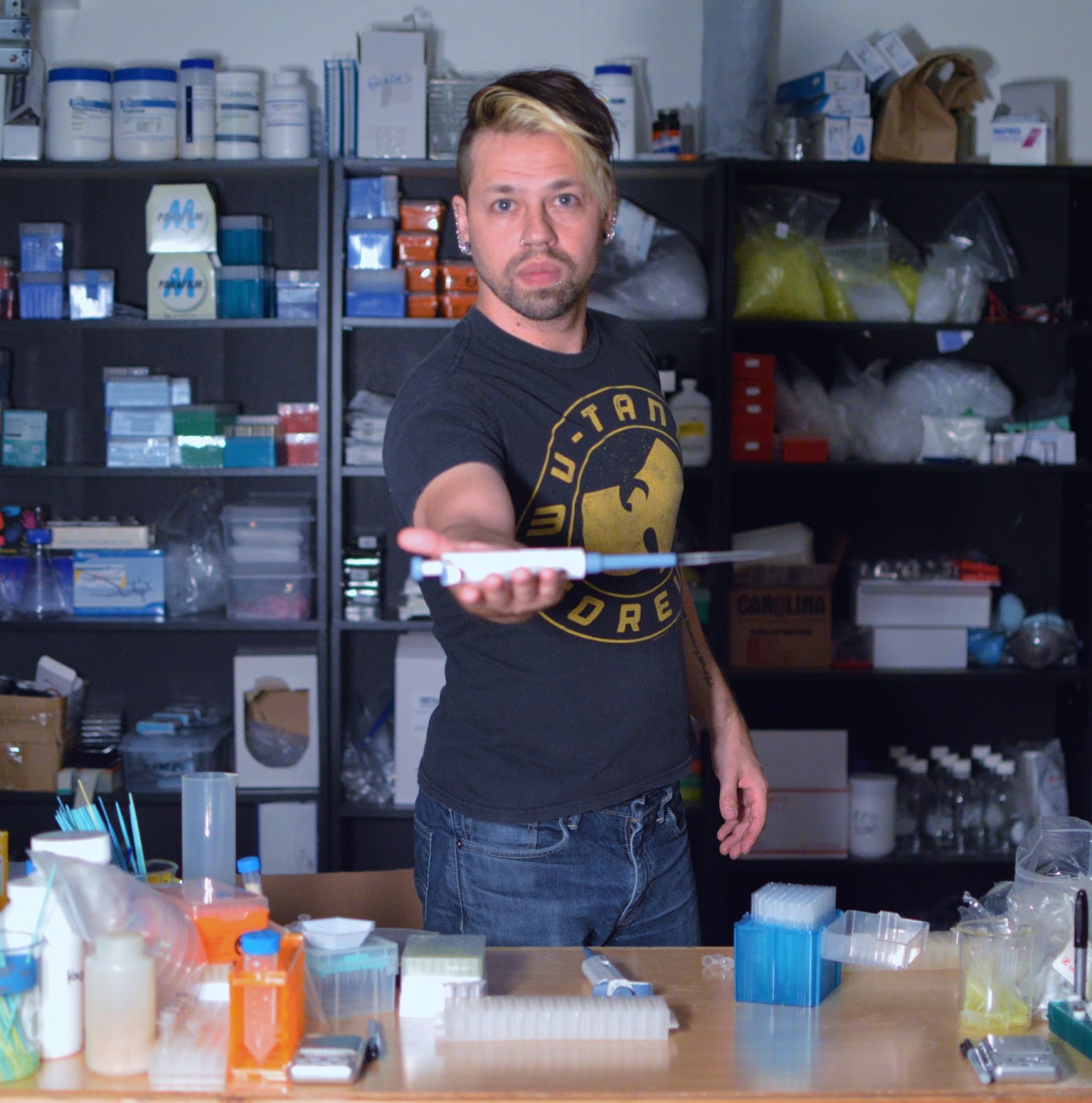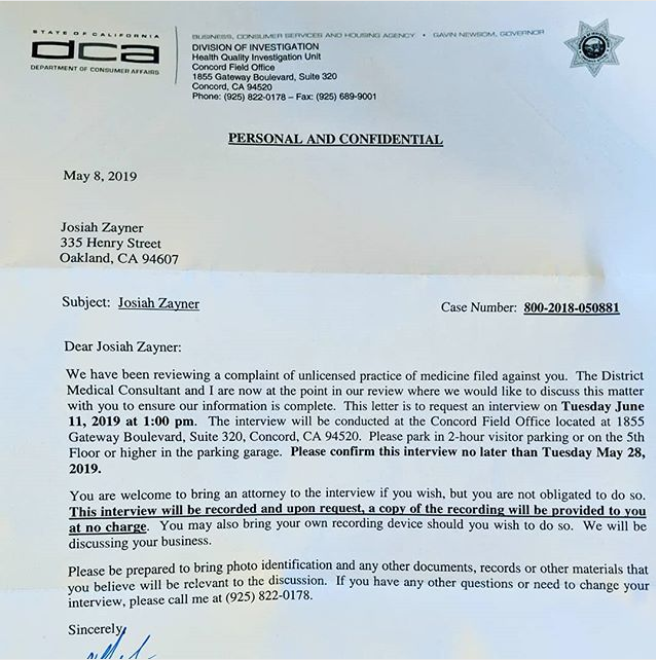Celebrity biohacker Josiah Zayner is under investigation for practicing medicine without a license

Josiah Zayner knows how to play the game. The onetime NASA scientist has leaped to social-media fame and earns a living by performing medical procedures on himself and then selling genetic-engineering supplies to other would-be “biohackers.”
His stunts so far include carrying out a fecal transplant in an airport hotel room and injecting his arm with CRISPR during a conference. If he’s not being tailed by a film crew, then he’s on YouTube teaching paying customers how to bio-hack and hectoring the US Food and Drug Administration for blocking innovation.
Now, though, the biohacker says he is under investigation for practicing medicine without a license in California. According to a letter sent May 8 by investigators at the California Department of Consumer Affairs, the agency received a “complaint of unlicensed practice of medicine” against Zayner, who holds a PhD in biophysics.
Zayner was asked to show up for an interview in June and “to bring an attorney if you wish.”
A spokesperson at the California consumer agency said it could not confirm the existence of the investigation or comment on what specific charges have been leveled against Zayner, whose piercings and spiky hair have made him instantly recognizable.
Biohacking, or DIY biology, typically refers to people who carry out simple experiments outside of university labs and companies. But some biohackers have taken things one step further, injecting or swallowing various types of home-brew gene-therapy treatments.
Zayner, who posted a copy of the letter to his Instagram account, says he believes he is being unfairly persecuted for “genetic self-experimentation and showing people how to access publicly available knowledge.” He also denied providing medical treatment to anyone.
“I have never given anyone anything to inject or use, never sold any material meant to treat a disease and never claim to provide treatments or cures because I knew this day would come,” Zayner wrote.
Anyone can file a complaint with California’s medical board, but the existence of an investigation would mean the charges are considered credible. Practicing medicine without a license can be a misdemeanor or a felony in California, with penalties of up to three years in jail and a $10,000 fine.

Zayner declined to comment, saying he did not believe MIT Technology Review would portray him in a positive light.
In YouTube appearances and elsewhere, Zayner often makes the case that the government is blocking cures, employing hashtags such as #RightToTry, #RightToLive, and #BodyAutonomy.
“People are dying” because the US government “refuses to allow people access to cutting edge treatments or in some cases even basic healthcare,” he posted. “Yet I am the one threatened with jail.”
So far, biohackers have not yet developed any notable genetic treatments. And their experiments are sometimes carried out in a reckless, circus-like atmosphere unlikely to produce anything useful. Zayner himself has said “there’s no doubt in my mind that somebody is going to end up hurt eventually” as biohackers seek fame through self-experimentation.
Zayner’s rebellious rhetoric is part of his business model of winning attention for what he says is a profitable business, The Odin, which he operates out of a garage and which sells a variety of DIY biology kits, including a $209 kit for making fluorescent yeast.
The FDA previously warned Zayner against selling kits to make glowing beer. After he and another biohacker posted videos of themselves self-injecting gene therapies of their own design, the agency also published a letter warning that selling do-it-yourself gene-therapy kits to others would be illegal.
Because Zayner commands significant media attention, he is regularly contacted for advice by people battling various kinds of severe illnesses. He has said he typically doesn’t respond to those inquiries.
“Yeah, I need to find a lawyer,” he tweeted. “I need a lawyer on retainer. People be accusing me of all types of crazy shit.”
Deep Dive
Biotechnology and health
How scientists traced a mysterious covid case back to six toilets
When wastewater surveillance turns into a hunt for a single infected individual, the ethics get tricky.
An AI-driven “factory of drugs” claims to have hit a big milestone
Insilico is part of a wave of companies betting on AI as the "next amazing revolution" in biology
The quest to legitimize longevity medicine
Longevity clinics offer a mix of services that largely cater to the wealthy. Now there’s a push to establish their work as a credible medical field.
There is a new most expensive drug in the world. Price tag: $4.25 million
But will the latest gene therapy suffer the curse of the costliest drug?
Stay connected
Get the latest updates from
MIT Technology Review
Discover special offers, top stories, upcoming events, and more.